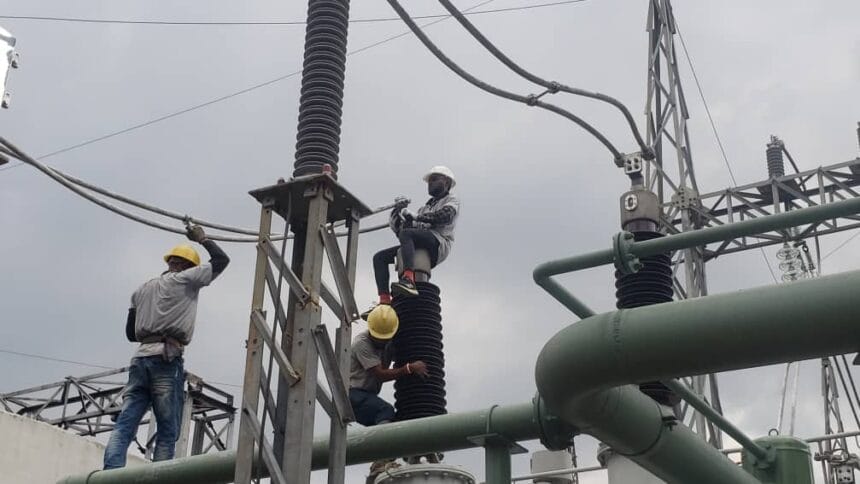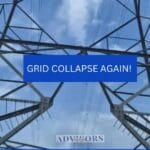warn NEMSA’s oversight gaps, inadequate monitoring could undermine efforts to prevent grid failures
“Engr. Samuel-On: Disco’s unchecked 33kV connections for Band A customers contribute to overloading, losses, frequent grid collapses” – Engr. Samuel-Oni
” TCN must prioritize system reliability over capacity expansion to prevent grid collapses” – Lanre Elatuyi
Oredola Adeola
Power sector experts warn that without thorough forensic analysis and adequate sanctions for any parties found responsible for Nigeria’s previous and recent grid collapses, the recommendations from Chief Adebayo Adelabu, Minister of Power’s inter-agency committee and Nigerian Electricity Regulatory Commission, NERC’s public hearings, may prove futile, leaving the Nigeria’s power sector vulnerable to further disruptions.
Advisors Reports noted that, in response to the escalating grid disturbances, Minister Adelabu established a six-member forensic investigation committee on October 22, 2024.
Led by Engr. Nafisat Ali, Executive Director of the Independent System Operator (ISO), the committee was directed to assess critical grid nodes for vulnerabilities and propose solutions, with the Minister issuing an immediate mandate for implementing their recommendations.
Simultaneously, the Nigerian Electricity Regulatory Commission (NERC) held a public hearing on October 24, 2024, to gather input from stakeholders, civil society organizations, and the general public regarding ongoing challenges within the Nigerian Electricity Supply Industry (NESI).
However, industry analysts who reviewed findings from both the Ministerial forensic committee and NERC’s consultations have noted that the reports contained general insights and textbook explanations, rather than specific forensic details required to address the underlying issues causing grid instability.
The experts further noted that Nigerian Electricity Management Services Agency (NEMSA), responsible for monitoring network standards and investigating technical faults, has struggled to provide the rigorous oversight needed to enforce standards across the network.
They hinted that fragmented communication between NEMSA and NERC has undermined effective coordination, hindering the enforcement of critical standards in grid operations and distribution codes, and that their collaboration is lacking, further hampering efforts to enforce these regulations.
Engr. Bisi Samuel-Oni, a seasoned technical consultant in Nigeria’s power sector, has on his part stated that the country’s ongoing grid collapses are primarily due to a combination of aging infrastructure, technical and regulatory challenges, governance issues, and underinvestment.
Speaking on the matter, he stated:
“Outdated infrastructure is a core issue, as it cannot meet current energy demands. This results in frequent overloading, high transmission and distribution losses, and unstable voltage levels.
“Maintenance practices are inadequate, and protective systems are insufficient. The situation is further compounded by the service band tariff, which has inadvertently encouraged unchecked connections to the 33kV network.”
He continued by highlighting the critical role of regulatory bodies like the Nigerian Electricity Management Services Agency (NEMSA), which he believes have been “dormant” in the industry.
According to Engr. Samuel-Oni, NEMSA lacks both the workforce and the necessary tools to effectively carry out its statutory responsibilities.
“A weak regulatory framework and ineffective governance are at the heart of these issues. NEMSA and other regulatory bodies fail to provide robust oversight, allowing chronic underfunding, outdated tariffs, and accountability gaps to persist.
“Political interference and a lack of transparent policies further hinder effective grid management, while insufficient funding prevents necessary modernization efforts,” he noted.
Engr. Samuel-Oni also criticized the impact of the service band tariff, which, while intended to structure charges based on service quality, has instead led to network strain.
“The service band tariff, intended to structure charges by service quality, inadvertently leads to network strain due to unregulated connections at high-voltage levels.”
He explained that this has resulted in frequent frequency and voltage instability, transformer failures, and insufficient reactive power compensation, further degrading the quality and reliability of power.
“The regulatory oversight bodies, NERC and NEMSA, often fail to coordinate effectively, hampering the enforcement of grid and distribution codes. NEMSA’s role in monitoring network standards and investigating faults is vital, yet collaboration with NERC remains inconsistent,” he said.
He further pointed out that underinvestment, coupled with low tariffs and a lack of skilled labor, has prevented the sector from achieving financial sustainability. Political interference, he argued, disrupts strategic initiatives, reduces investor confidence, and limits long-term planning and private sector engagement.
To address these challenges, Engr. Samuel-Oni proposed a staged approach to solving both short- and long-term issues. In the immediate term, he recommended a thorough grid assessment, the upgrading of protective and control systems, and emergency repairs.
For the medium term, he emphasized the need for increased transmission capacity, deployment of renewable energy, and the integration of smart grid technology. Long-term transformation, he said, would require a comprehensive master plan, cost-reflective tariffs, an independent system operator, and focused human capital development.
“A stronger regulatory framework is essential,” he stressed. “Government intervention should be minimized to allow agencies like NERC and NEMSA to operate independently and coordinate effectively.
“For every grid collapse, NEMSA should conduct technical investigations, analyze the causes, and recommend actionable solutions. Where grid code violations occur, sanctions should be imposed without interference to reinforce accountability.”
Engr. Samuel-Oni pointed out that there has been no comprehensive report or forensic investigation into previous grid collapses, making it difficult to pinpoint specific causes beyond generic or textbook explanations.
“Without previous investigations into the causes of grid collapses, it is challenging to definitively determine the root issues. We are often left with general statements and theoretical reasons for these failures,” he concluded.
Lanre Elatuyi, an Electricity Market Analyst, on his part, stated that while various causes were discussed during a recent public hearing organized by the Nigerian Electricity Regulatory Commission (NERC), the actual primary causes of the recent collapse have yet to be clearly identified.
He pointed out that the System Operator, responsible for ensuring system reliability, needed to provide more specific insights into the causes, rather than making general comments on potential issues.
“Most of the issues lie in what the System Operator has to say, as they are directly in charge of system reliability.
“Instead of making general statements about the likely causes of grid collapse, it is better to listen to them for a more accurate diagnosis,” Elatuyi said.
Elatuyi also expressed skepticism about the effectiveness of the recent report submitted to the Minister of Power, warning that its recommendations may not lead to significant change in the short term.
“So, will anything change with the implementation of the report? I am not sure, at least in the short term.
“Most of the solutions proposed are not implementable quickly, and with the acute illiquidity in the sector, addressing the persistent grid collapses remains a tough task,” he added.
He emphasized that the way the grid is currently operated cannot continue in the same manner as it was in the 1980s.
With advances in technology and expanding knowledge, Elatuyi stressed the importance of keeping grid operators updated on best practices for efficient grid management.
“We can’t operate the grid the same way we did in the 80s. Technology has improved, and knowledge has expanded.
“If the grid operators don’t stay abreast of how the grid should be operated efficiently, we will continue to experience repeated grid collapses,” he stated.
Elatuyi also expressed concerns about the role of NEMSA, the Nigerian Electricity Management Services Agency, in the industry.
He described the agency as being “dormant” and suggested that it appears to lack both the empowerment and resources needed to fulfill its statutory responsibilities effectively.
“NEMSA has been dormant in the industry, and it seems they are not empowered to do all they need to do. I am not sure NEMSA has the workforce or the necessary tools to carry out their statutory duties,” he remarked.
“Additionally, there seems to be a strained relationship between NEMSA and the regulator, NERC, which makes it difficult for NEMSA to sanction any party in the sector if NERC sees it as something within their purview.”
He further highlighted that while NEMSA is legally required to certify every piece of equipment installed on the grid, there is also a department within NERC that oversees this area.
He questioned whether NEMSA has the proper tools and autonomy to effectively perform this role.
“NEMSA by law should certify every piece of equipment to be installed on the grid, but there is also a department in NERC that handles this area. The question is whether NEMSA has all the needed tools and the freehand to do their work,” Elatuyi explained.
In terms of solutions to the frequent grid collapses, Elatuyi called for a shift in focus for the Transmission Company of Nigeria (TCN).
He suggested that TCN should prioritize system reliability in their projects, rather than solely focusing on capacity expansion.
“The transmission company should focus more on system reliability in their projects, rather than just capacity expansion. There is also a need for robustness in our protection and control systems, so that faults can be isolated without cascading effects that may lead to a collapse,” he stated.
Elatuyi also emphasized the importance of holding parties accountable for any collapse, calling for consequences for those found guilty of causing a grid failure.
“There has to be consequences for any party found guilty of causing a collapse.
‘There are also market-based mechanisms that can be used to ensure that the necessary ancillary services are procured to maintain reliability on the grid,” he said.




